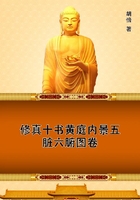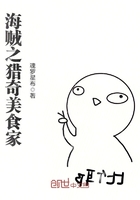Nilsson was especially struck by the fact that the plots, which should represent distinct types, were far from uniform. Many of them were as multiform as the fields from which the parent-ears were taken. Others showed variability in a less degree, but in almost all of them it was clear that a pure race had not been obtained. The experiment was a fair one, inasmuch as it demonstrated the polymorphic variability of cereals beyond all doubt and in a degree hitherto unsuspected; but from the standpoint of the selectionist it was a failure. Fortunately there were, however, one or two exceptions. A few lots showed a perfect uniformity in regard to all the stalks and ears: these were small families. This fact suggested the idea that each might have been derived from a single ear. During the selection in the previous summer, Nilsson had tried to find as many ears as possible of each new type which he recognised in his fields. But the variability of his crops was so great, that he was rarely able to include more than two or three ears in the same group, and, in a few cases, he found only one representative of the supposed type. It might, therefore, be possible that those small uniform plots were the direct progeny of ears, the grains of which had not been mixed with those from other ears before sowing. Exact records had, of course, been kept of the chosen samples, and the number of ears had been noted in each case. It was, therefore, possible to answer the question and it was found that those plots alone were uniform on which the kernels of one single ear only had been sown.
Nilsson concluded that the mixture of two or more ears in a single sowing might be the cause of the lack of uniformity in the progeny. Apparently similar ears might be different in their progeny.
Once discovered, this fact was elevated to the rank of a leading principle and tested on as large a scale as possible. The fields were again carefully investigated and every single ear, which showed a distinct divergence from the main type in one character or another, was selected. Athousand samples were chosen, but this time each sample consisted of one ear only. Next year, the result corresponded to the expectation.
Uniformity prevailed almost everywhere; only a few lots showed a discrepancy, which might be ascribed to the accidental selection of hybrid ears. It was now clear that the progeny of single ears was, as a rule, pure, whereas that of mixed ears was impure. The single-ear selection or single-ear sowing, which had fallen into discredit in Germany and elsewhere in Europe, was rediscovered. It proved to be the only trustworthy principle of selection. Once isolated, such single-parent races are constant from seed and remain true to their type. No further selection is needed; they have simply to be multiplied and their real value tested.
Patrick Shirreff, in his early experiments, Le Couteur, Hays and others had observed the rare occurrence of exceptionally good yielders and the value of their isolation to the agriculturist. The possibility of error in the choice of such striking specimens and the necessity of judging their value by their progeny were also known to these investigators, but they had not the slightest idea of all the possibilities suggested by their principle.
Nilsson, who is a botanist as well as an agriculturist, discovered that, besides these exceptionably good yielders, every variety of a cereal consists of hundreds of different types, which find the best conditions for success when grown together, but which, after isolation, prove to be constant. Their preference for mixed growth is so definite, that once isolated, their claims on manure and treatment are found to be much higher than those of the original mixed variety. Moreover, the greatest care is necessary to enable them to retain their purity, and as soon as they are left to themselves they begin to deteriorate through accidental crosses and admixtures and rapidly return to the mixed condition.
Reverting now to Darwin's discussion of the variability of cereals, we may conclude that subsequent investigation has proved it to be exactly of the kind which he describes. The only difference is that in reality it reaches a degree, quite unexpected by Darwin and his contemporaries. But it is polymorphic variability in the strictest sense of the word. How the single constituents of a variety originate we do not see. We may assume, and there can hardly be a doubt about the truth of the assumption, that a new character, once produced, will slowly but surely be combined through accidental crosses with a large number of previously existing types, and so will tend to double the number of the constituents of the variety. But whether it first appears suddenly or whether it is only slowly evolved we cannot determine. It would, of course, be impossible to observe either process in such a mixture. Only cultures of pure races, of single-parent races as we have called them, can afford an opportunity for this kind of observation. In the fields of Svalof new and unexpected qualities have recently been seen, from time to time, to appear suddenly. These characters are as distinct as the older ones and appear to be constant from the moment of their origin.
Darwin has repeatedly insisted that man does not cause variability. He simply selects the variations given to him by the hand of nature. He may repeat this process in order to accumulate different new characters in the same family, thus producing varieties of a higher order. This process of accumulation would, if continued for a longer time, lead to the augmentation of the slight differences characteristic of varieties into the greater differences characteristic of species and genera. It is in this way that horticultural and agricultural experience contribute to the problem of the conversion of varieties into species, and to the explanation of the admirable adaptations of each organism to its complex conditions of life. In the long run new forms, distinguished from their allies by quite a number of new characters, would, by the extermination of the older intermediates, become distinct species.
Thus we see that the theory of the origin of species by means of natural selection is quite independent of the question, how the variations to be selected arise. They may arise slowly, from simple fluctuations, or suddenly, by mutations; in both cases natural selection will take hold of them, will multiply them if they are beneficial, and in the course of time accumulate them, so as to produce that great diversity of organic life, which we so highly admire.
Darwin has left the decision of this difficult and obviously subordinate point to his followers. But in his Pangenesis hypothesis he has given us the clue for a close study and ultimate elucidation of the subject under discussion.















